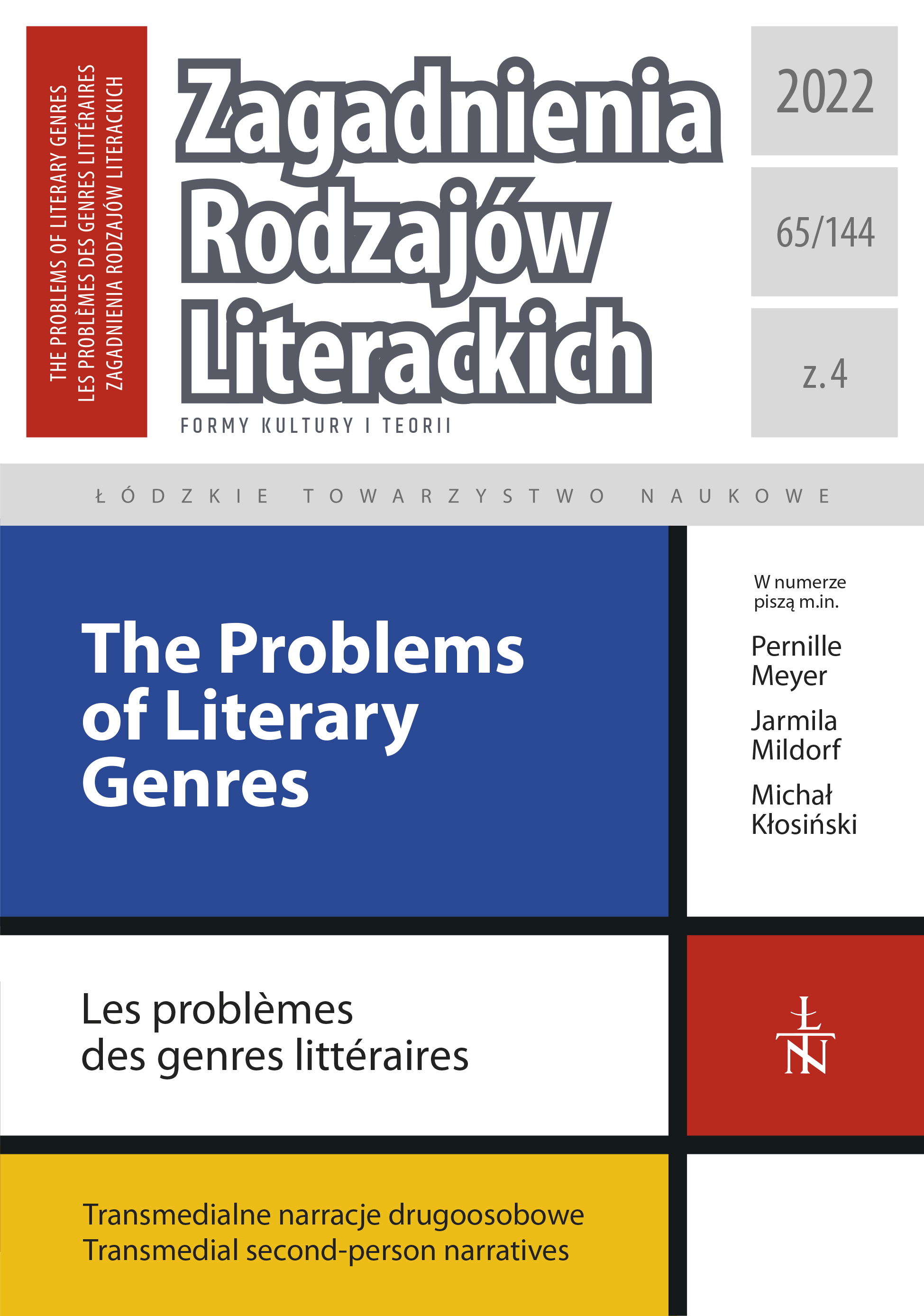Between Games and Literature. Thoughts on Michał Dawid Żmuda’s book Zgrywanie literatury. Intermedialne związki gier cyfrowych z literackością, Wydawnictwo Uniwersytetu Rzeszowskiego, Rzeszów 2021, ss. 267
DOI:
https://doi.org/10.26485/ZRL/2022/65.4/10Keywords:
game studies, narratology vs. ludology, remediation, remixability, convergenceAbstract
This article is a critical theoretical review of the relationships between digital games and literature and how they are depicted in Michał Dawid Żmuda’s book Zgrywanie literatury. Intermedialne związki gier cyfrowych z literackością. When discussing the ways in which, and how, games and literature are related, Żmuda rather strictly focuses on the literary-specific communication, means of expression and interface and how it functions in computer games due to the process of remediation. This article argues that analysis of representation of verbal information in computer games, or intertextual relationships between specific books and games should be regarded in the broader scope of issues that are defining contemporary media culture at large. Terms like remediation or intermedia are simply not fully satisfying while discussing digital art forms, it is more productive to view them through the lens of remixability, interactivity, and other qualities of new media in general. This article also argues that the Narratology vs. Ludology debate in Game Studies presented as two schools of thought attempts to identify the essential features of games that help express a game’s meaning has never really happened. Moreover, no one has been interested in making the argument that there is no difference between games and stories or that games are merely a subset of stories, and so we are dealing more with the lack of the actual debate because one group of people is defining both sides of it
Downloads
References
Aarseth Espen (2004), Genre Trouble: Narrativism and the Art of Simulation [w:] First Person. New Media as Story, Performance, and Game, red. N. Wardrip-Fruin, P. Harrigan, The MIT Press, Londyn.
Bolter Jay David, Grusin Richard (2000), Remediation: Understanding New Media, The MIT Press, Cambridge.
Eskelinen Markku (2001), The Gaming Situation, „Game Studies” nr 1, lipiec 2001, www.game¬studies.org/0101/eskelinen/ [dostęp: 26.07.2022].
Juul Jesper (2004), The Definitive History of Games and Stories, Ludology and Narratology, www.jesperjuul.net/ludologist/2004/02/22/the-definitive-history-of-games-and-stories-ludology-and-narratology [dostęp: 20.07.2022].
Manovich Lev (2006), After Effects or Velvet Revolution, www.manovich.net [dostęp: 26.07.2022].
Murray Janet (2005), The Last Word on Ludology v Narratology in Game Studies, www.researchgate.net/publication/251172237_The_Last_Word_on_Ludology_v_Narratology_ in_Game_Studies [dostęp: 23.07.2022].
Prajzner Katarzyna (2022), Czytanie interaktywnych obrazów. Gry komputerowe w perspektywie dynamicznej tekstualności, Wydawnictwo Uniwersytetu Łódzkiego, Łódź.
Żmuda Michał Dawid (2021), Zgrywanie literatury. Intermedialne związki gier komputerowych z literackością, Wydawnictwo Uniwersytetu Rzeszowskiego, Rzeszów.







